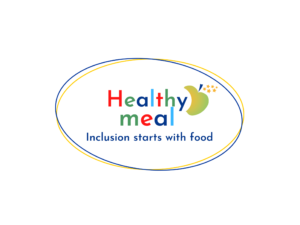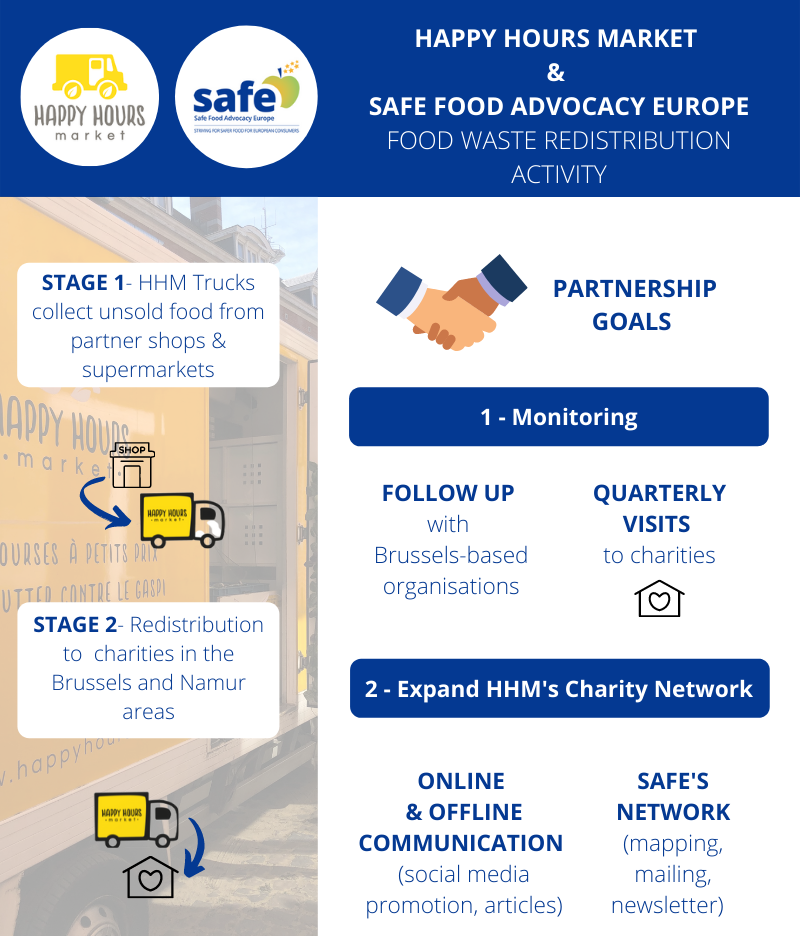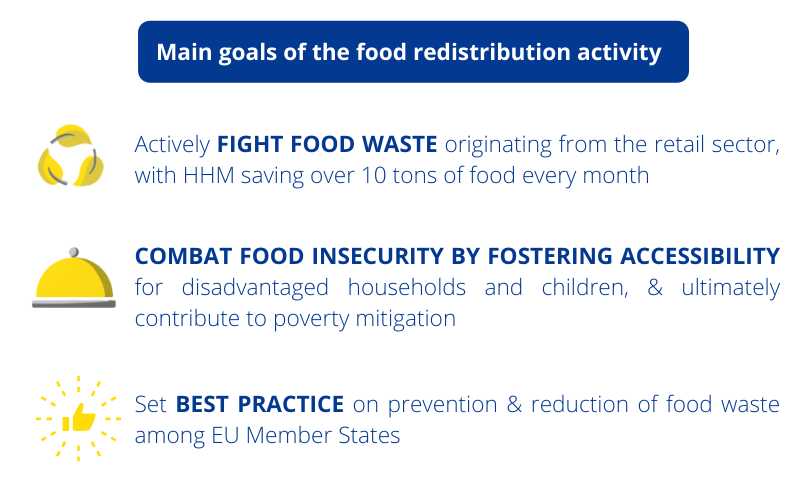INCLUSION as part of FOOD4INCLUSION PROJECT
– IMPROVING ACCESSIBILITY TO FOOD FOR VULNERABLE PEOPLE
Food loss and waste are reducing food access and availability across the EU and thus are critically undermining food security for disadvantaged people. The reduction of food waste along the supply chain, from production to consumption, is crucial to improve food security, while reducing pressure on natural resources.
HEALTHY MEAL
The ESF+ Food4Inclusion – Healthy Meal project aims to create a network of restaurants offering healthy meals to vulnerable people at reduced prices on a given day of the week and to promote this practice throughout Europe. The European Social Fund Plus (ESF+) is the main European Union (EU) instrument for investing in people. It focuses on social inequality and poverty, youth unemployment and child poverty.
Through Healthy Meal, SAFE wants to facilitate access and visibility of healthy food in restaurants, considering the importance that pricing plays in influencing the behaviour and choices of consumers. To develop Healthy Meals we call on actors of the food scene to offer healthy food at reduced prices on a given day of the week to the poorest segments of the population and to promote these practices across Europe.

The project was launched in six European countries: Belgium, Croatia, Greece, Italy, Lithuania, and Romania. In recent months, all information material for restaurants, the agreement protocol and the logo to be used to increase the visibility of the initiative have been prepared. In particular, it was emphasized that a healthy diet – includes fruit, vegetables, legumes, nuts, and whole grains and limits the consumption of free sugars, salt, and fat – is one that promotes health and prevents disease by encouraging adequate consumption of nutrients and discouraging the consumption of substances that are harmful to health.
Sustainability means meeting the needs of the present generation without compromising the ability of future generations to meet their own needs. Applied to food, sustainability means choices that help preserve the environment by reducing the associated environmental costs, such as eating local and seasonal foods.
Brochure restaurant: English, French, Greek, Croatian
Partnerships
Projekt9 – Osijek, Croatia
Entelamezén – Pireas, Greece
Margarita – Athens, Greece
Flamouries – Veria, Greece
Ristorante Pizzeria da Angelo alla Cupola – Rome, Italy
Kravgi tou Glarou – Thessaloniki, Greece
Ta Aderfia – Thessaloniki, Greece
HAPPY HOURS MARKET
Through its partnership with Happy Hours Market, SAFE works to promote redistribution of food surpluses to people in need, to improve food accessibility for the poorer. We also advocate for sustainable ways of producing, to reduce food loss and promote better processes of production in order to improve food security and accessibility.
What is food waste?
It is estimated that around 88 million tonnes of food is thrown away each year in the EU, with countries like Belgium wasting approximately 3.6 tons of food annually. These figures add to the colossal amounts of food lost and wasted along the supply chain (e.g. during the harvesting and production stages).
Food waste is defined by FUSIONS as ” any food, and inedible parts of food, removed from the food supply chain to be recovered or disposed (including composted, crops ploughed in/not harvested, anaerobic digestion, bio-energy production, co-generation, incineration, disposal to sewer, landfill or discarded to sea)”. Food waste constitutes a dire environmental issue, being also accountable for 8% of all global greenhouse gas emissions caused by humans.
Why food redistribution?
Undoubtedly, the best way of avoiding, or at least reducing, food waste is to implement preventive measures with regard to the EU’s Waste Policy. These measures range from the primary production level, shortening the food supply chain, to the consumer level, buying responsively. With regard to retail and shops food waste, food redistribution is seen as one of the most effective solutions, in last resort cases when food waste prevention is impossible or unsuccessful.
What’s more, food redistribution appears an effective solution to contribute to food insecurity mitigation in the EU, where it is estimated that 1 in 4 European suffers from at least one form of poverty and 43 million Europeans are not able to afford a quality meal every other day (Eurostat, 2018).
SAFE’S FOOD REDISTRIBUTION ACTIONS
Since December 2021, SAFE has teamed up with Happy Hours Market, a Belgian start-up that fights food waste by offering consumers unsold food from supermarkets at a reduced price. The remaining food is then redistributed to charities in order to further halt food waste and help out those in needs. Happy Hours Market currently delivers to 8 charities located across Namur and Brussels, with food deliveries benefiting disadvantaged groups of pensioners, children or college students.
The goal of this partnership is to better combat food waste while maximising the social impact of the campaign. This will be through an active follow-up of Happy Hour Market’s deliveries with organisations, while striving to expand the charity network through a joint communication strategy.
To find out more about SAFE’s past campaigns on Food Waste under the LIFE Programme, click here.
For more information on SAFE’s actions on food donation rules and food waste reduction targets, head over to our EU Waste Policy page.








